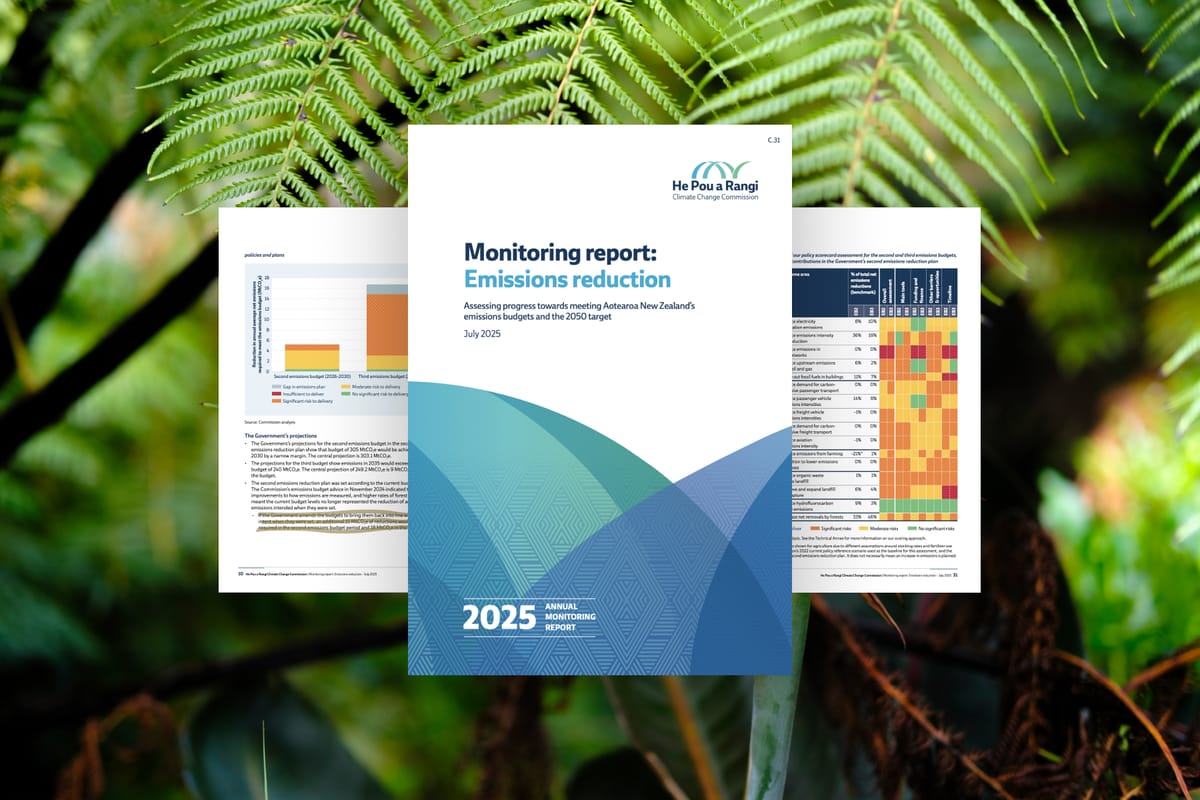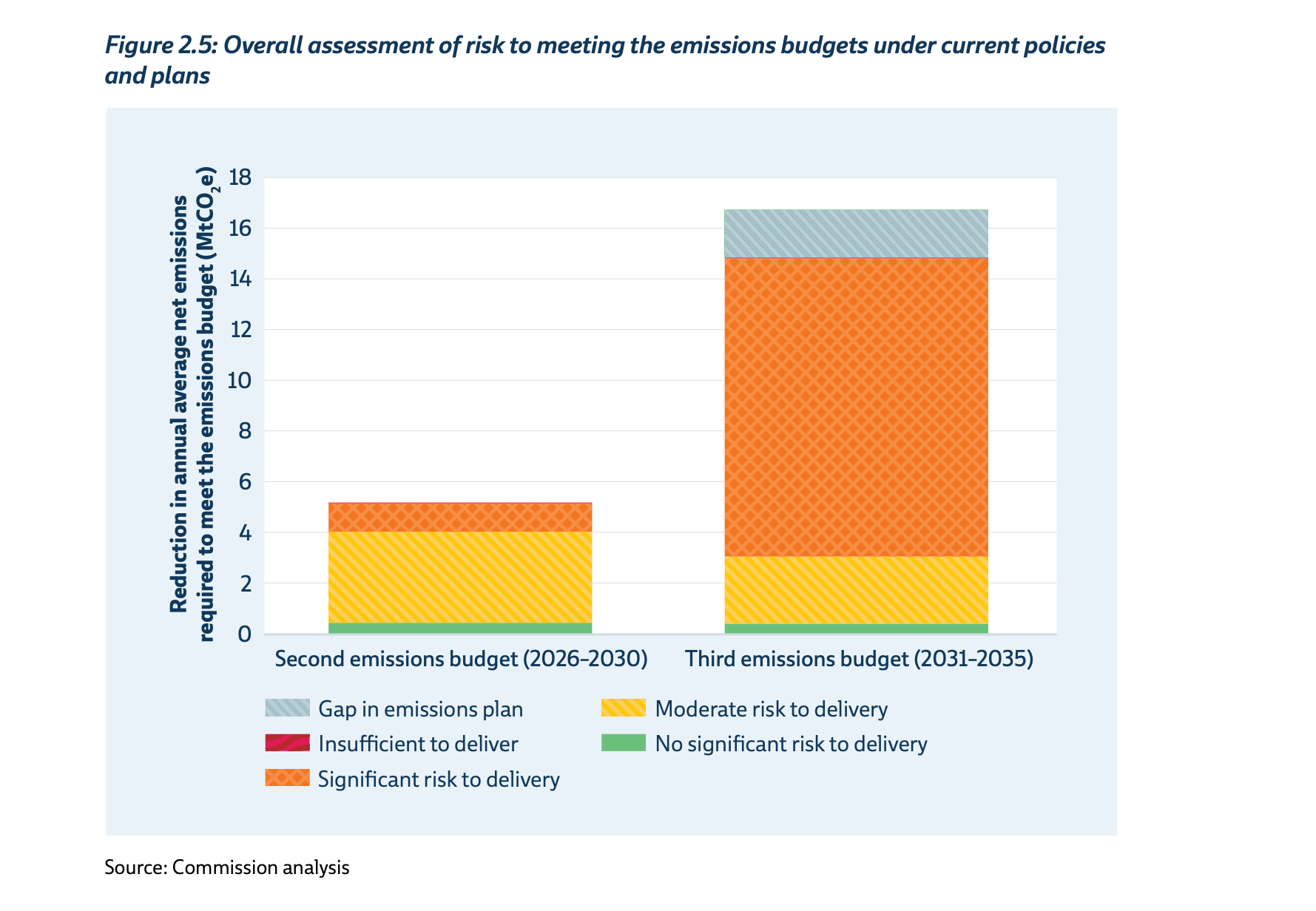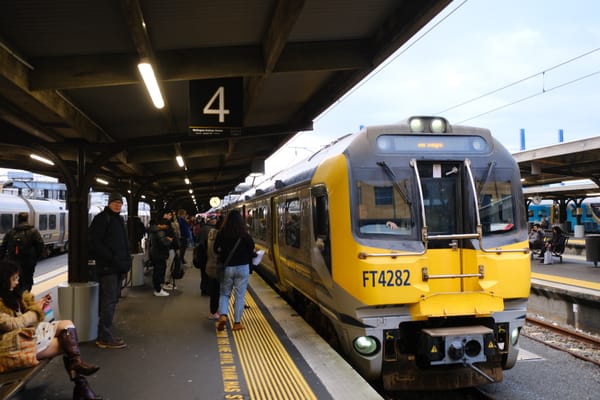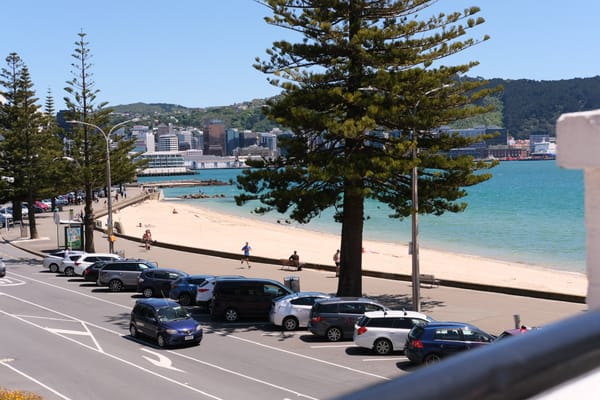Luxon risks a broken promise on pollution
The Government has received an early warning signal to improve its pollution plan. Will they keep their promise to cut pollution?

Big news for climate nerds: the Climate Change Commission has released its yearly report into how the country is doing in its quest to cut pollution.
It is a 156 page beast of a document with crucial findings that, aside from our wonderful climate journalists, hasn’t received enough coverage.
So I read the report.
Essentially, the Government needs to do more, now. We’re not on track to be net zero pollution by 2050. The Government has received an early warning signal to make change now so we can get back on track.
Thankfully, there are opportunities across energy, farming, and transport that will make life in New Zealand better and cut pollution.
Will the Government take note? In my view, it should: our Prime Minister has repeatedly promised he’d keep us on track for our 2050 pollution target.
Let’s explore the three key things we should keep in mind now this report is released.
First, the promise
When Christopher Luxon was campaigning to become Prime Minister in 2023, he promised to keep the country on the path to drastically cut our pollution by 2050. Luxon specifically said during the 2023 election:
"We believe very strongly in net-zero 2050. The means by which we deliver those goals will be different from the government but we are deeply, deeply committed to that."
He reaffirmed this commitment as recently as March:
"We are committed to delivering on net zero 2050, as we have consistently said from the beginning."
Luxon committed in Parliament to net zero by 2050.
If your definition of delivery is based in reality, that means the Coalition Government is committed to cutting the country's pollution in line with the laws they helped pass in opposition in 2019.

Second, the challenge
This report represents a fundamental challenge to the Government's argument that they're taking enough action on climate change.
Essentially, the Climate Commission says that not enough is being done to keep us on track for our climate goals. One dry year, a forest fire, anything being delayed, will mean that Aotearoa pollutes more than National agreed to. The plan to cut pollution, released last year, faces "significant risk" to actually delivering.
There are many reasons why.
Firstly, the plan relies too much on planting trees. At first glance, that seems fine. The problem is that this is an accounting solution when really we should be making a technology transition. Polluting less by electrifying our economy comes with huge benefits, like $1.1 billion a year saved in avoided harm from air pollution. Planting trees, on the other hand, only vacuums up pollution after the fact. It costs loads and we still suffer the same health and economic consequences of sticking with expensive fossil fuels.
On top of that, huge parts of the Government’s plan rely on technology that isn’t commercially available. If the plan depended on a mature technology like solar panels, amazing. It doesn’t. It depends on methane vaccines and feed supplements to stop cows burping so much pollution – technologies that aren’t available to farmers yet.
It also depends on one single carbon capture project, something the Commission says "may not be realised". That seems like report-speak for “not likely bro.”
Oh, and that’s not mentioning the hugely pro-pollution policies this Government has rammed through, like cutting EV credits and putting pressure on public transport, bringing back oil and gas exploration, binning investment in low pollution technology, and delaying agriculture paying anything for its pollution by another five years.
Third, the questions
The evidence is in. National isn't on track to deliver net zero by 2050 like they promised. Our leaders need to take action, right now. This verdict is coming from a politically independent Commission that National voted to create.
So, will the Government change course?
I asked them. This is what Climate Minister Simon Watts has to say:
The Government welcomes the Climate Change Commission’s annual monitoring report on emissions reductions.
The report gives valuable insights on how we are tracking towards our emissions targets. We will carefully consider the report’s findings before developing our formal response to the report, which is due in October 2025.
Of course, my calendar now has a little reminder to check in.
Changing course would be a huge boost to our economy, for what it’s worth. Just take a look at the suggestions that the Commission recommended to do a better job with our pollution problem:
- remove the subsidies the Government gives to polluters
- fast track climate infrastructure
- build more houses on rail lines and bus lanes
- help farms switch to horticulture rather than pine forests
- help Kiwi households to electrify everything, from stovetops to heat pumps
- train the next generation of tradies to rewire our nation for the future.
These ideas are effective ways to improve our economy, train our youngest in good jobs, cut costs in an affordability crisis, AND cut our pollution.
The Coalition is facing a real challenge. Nearly 30,000 jobs have been lost in the last year and we’re losing hundreds of skilled Kiwi to Australia every day.
This recession is the reason the Government has argued for spending less. Many economists would argue that our economy needs more spending on infrastructure to support the economy through this tough period.
The Coalition could kill two birds with one stone. Investing into electrifying our economy will boost our construction sector, save Kiwi heaps on their expenses, and insulate us from disasters. It is the shot in the arm the economy needs.
Now is the time to use the government’s books to unleash low pollution technologies that won’t cost the earth or our wallets.
Luxon promised to keep us on track for net zero 2050. The evidence is in: we’re off track.
Will his government change their strategy, or are promises empty in politics?





